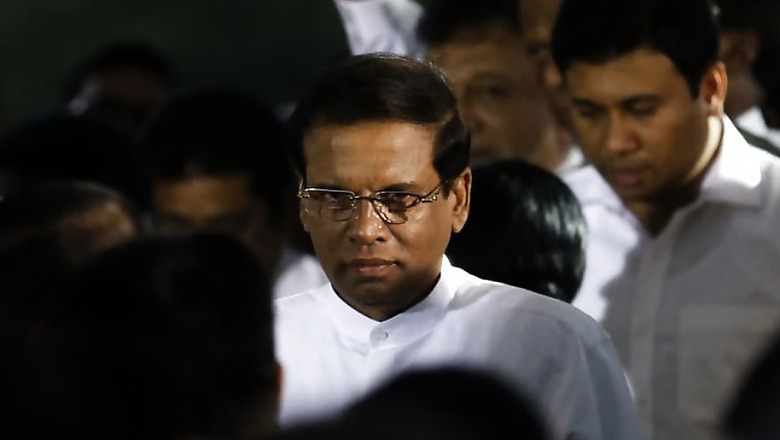
views
Colombo: Sri Lanka's top court is expected to deliver on Thursday its crucial verdict on whether President Maithripala Sirisena broke the law by dissolving Parliament that plunged the country into unprecedented political turmoil.
Sri Lanka is going through a major political crisis since October 26 when President Sirisena, in a controversial move, removed Prime Minister Ranil Wickremesinghe and installed ex-strongman Mahinda Rajapaksa in his place.
Sirisena, after sacking Wickremesinghe, dissolved Parliament and called for a snap election on January 5.
As many as 13 petitions have been filed against Sirisena's November 9 order sacking the 225-member Parliament, almost 20 months before its term was to end.
The Supreme Court on November 13 had issued an interim order ruling Sirisena's gazette notification as temporarily illegal and halted the preparations for snap polls.
A 3-member Supreme Court bench is examining the petitions against and for the move. On December 7, they reserved the judgement for this week.
If the ruling goes against Sirisena it would put the president in a difficult situation given his public statement that he would not restore the pre-October 26 position by reappointing Wickremesinghe.
Sirisena sacked Parliament when it appeared that Rajapaksa would not be able to muster the support of 113 MPs. Wickremesinghe on the other hand commands a majority.
Analysts said the Supreme Court ruling would be the first step in the resolution of the ongoing political crisis, the likes of which has never been witnessed in the island nation's history.
Sirisena has said he will accept the Supreme Court's ruling on the petitions filed against his gazette notification dissolving Parliament.
Sirisena ran the national unity government with Wickremesinghe's United National Party (UNP) since 2015. The partnership ended on October 26 when Sirisena fired Wickremesinghe, triggering the political standoff.
Since ousting Wickremesinghe, Sirisena has highlighted the "shortcomings" of the ex-premier in a bid to justify his sacking and dissuade his reinstatement.
Both Wickremesinghe and Rajapaksa claim to be the rightful prime minister. Wickremesinghe says his dismissal is invalid because he still commands a majority in Parliament.
Speaker Karu Jayasuriya has officially conveyed that the House does not recognise Rajapaksa as the legal prime minister until he proves his majority.
The United National Front (UNF) coalition led by Wickeremesinghe has moved three no-trust motions against Rajapaksa.
The motions came to be adopted after the speaker summoned Parliament, in a direct confrontation with Sirisena.
Rajapaksa has, so far, failed to prove his majority in Parliament, however he has refused to step down. Wickeremesinghe has the backing of 106 parliamentarians, while the Rajapaksa-Sirisena combine has the support of 95




















Comments
0 comment